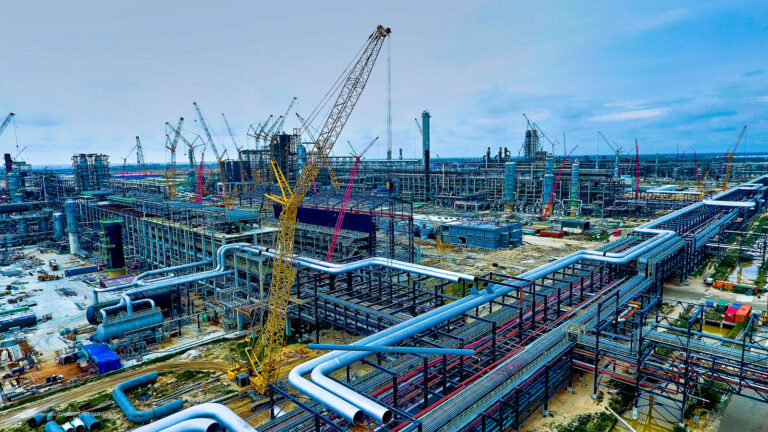In a significant move that will ease the financial strain for many Nigerians, Dangote Petroleum Refinery has announced a reduction in the ex-depot price of premium motor spirit (PMS), commonly known as petrol. The price has been cut from over N930 per litre to N865, marking a N65 decrease.
This reduction comes at a time when global crude oil prices, particularly Brent crude, have been experiencing a downturn. On Wednesday, Brent crude prices dropped below $60 per barrel, reaching $62.08 per barrel, which is the lowest level since February 2021. This decline has been attributed to mounting trade tensions and increased oil production from OPEC members.
For the first time in a while, Brent crude fell by 5.19%, while West Texas Intermediate (WTI) crude dropped 5.65% to $58.83. Forecasts from the Energy Information Administration (EIA) had predicted that oil prices would fall below an average of $81 per barrel in 2024, but the decrease is happening more rapidly than expected. According to the EIA, prices could dip to $74 per barrel in 2025 and $66 in 2026, driven by strong production growth and slower demand growth.
Analysts and oil marketers are optimistic that the decline in global oil prices will lead to further drops in fuel prices, with some even projecting that petrol could soon fall below N400 per litre.
In addition to the reduction in fuel prices, the Nigerian government has also resumed the Naira-for-crude deal, a long-suspended initiative aimed at ensuring sustainable local refining. On Wednesday, the Federal Executive Council (FEC) directed the full implementation of this agreement with local refiners. This policy is seen as a strategic move to reduce Nigeria’s reliance on imported fuel while bolstering local refining capacity.
In March, Dangote Refinery had initially pulled out of the agreement with the Nigerian National Petroleum Company (NNPC) due to a mismatch between its crude purchase obligations, which are priced in US dollars, and sales revenue earned in naira. However, with the government’s renewed commitment to the naira-for-crude deal, local refineries are expected to play a crucial role in stabilizing fuel prices and ensuring energy security for Nigeria.
With the combined effect of falling oil prices and a more stable naira-for-crude arrangement, Nigerians can expect further price reductions, bringing much-needed relief to households and businesses across the country.

